England Lionesses: A look back at how Preston's remarkable Dick, Kerr Ladies took the footballing world by storm a century before Euros triumph
and live on Freeview channel 276
Christmas Day 1917 saw the Dick, Kerr Ladies run out onto the hallowed pitch at Deepdale for the first time, in a game against the Arundel Coulthard Factory, winning 4-0. This team of women from the Preston area, dressed in black and white, blue shorts and a hat, have been credited as with launching the women’s game in Britain. But what do we know about these ordinary women who went on to become one of the most famous women’s football teams of all time? Possibly even indirectly inspiring the England team’s European Championships win against Germany.
How they formed
Dick, Kerr & Co Ltd was a tramcar and light railway rolling stock manufacturer based in Preston that was converted to a munitions factory in 1915 as part of the war effort. It was at this time that the Suffragettes movement was taking England by storm and Victorian values were slowly being phased out. Women were employed to do the jobs normally done by men who were now on the front lines. It was during this time that the girls working in the factory were encouraged to participate in organised sporting activity to help wartime moral.
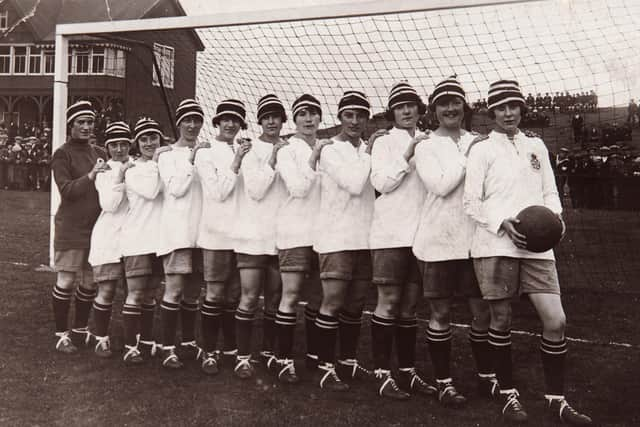

Advertisement
Hide AdAdvertisement
Hide AdInitially, the novelty of women playing football was used to raise money for war charities, with crowds flocking to see the so-called munitionettes’ take on teams of injured soldiers and women from other towns and villages.
And after beating their male factory co-workers in an informal lunch-time match, office worker Alfred Frankland decided to take on the role as manager for this Dick, Kerr’s women’s team and unleash them on the general public.
The result was game-changing and instantaneous.
This first match drew a crowd of 10,000, and by 1920, a Boxing Day match against St Helen’s Ladies was watched by 53,000 spectators at Goodison Park, with another 14,000 locked outside the ground trying to get in. This astonishing feat was never to be replicated until modern times in the history of women’s football.
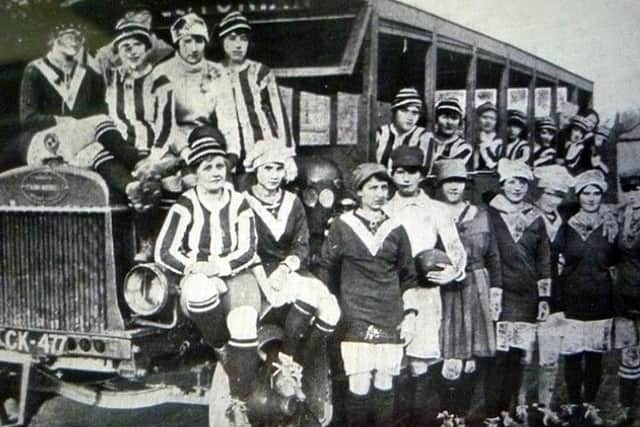

Rise to fame
They soon went on to become the most successful team in the history of women’s football. At their peak, the Dick, Kerr ladies were nicknamed the unofficial England team.
Advertisement
Hide AdAdvertisement
Hide AdThey were the first women to play an international game, entertaining a team from Paris in front of 25,000 supporters; and they were the first women’s team to go on an overseas tour and even won The Championship of the World’ in 1937.
What happened next?
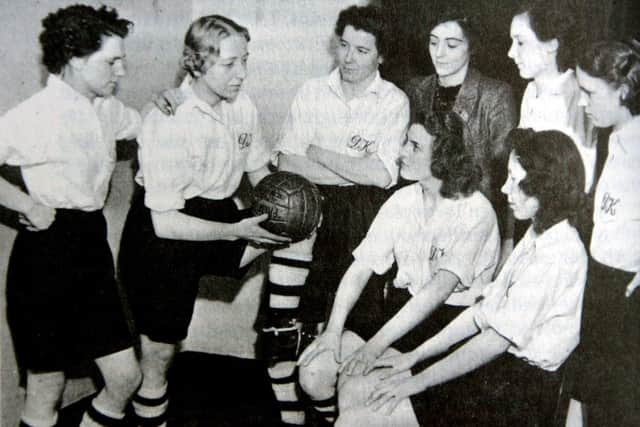

This so-called golden era’ of women’s football was to be short-lived. As the men arrived back from the front to take up their old jobs, women were expected to return to domestic life.
Then on December 5, 1921, the FA published a report that offered three key reasons why women’s football matches should henceforth be banned from taking place on their pitches.
Firstly, it said that football was "quite unsuitable for females."
Advertisement
Hide AdAdvertisement
Hide AdSecondly, there were complaints about "the conditions under which some of these matches have been arranged and played."
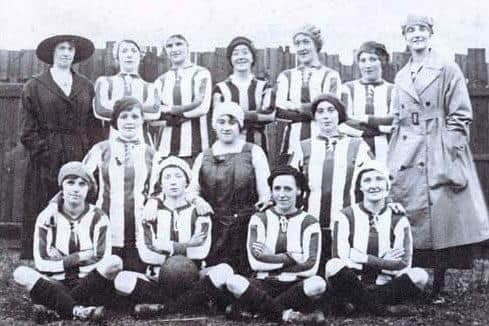

And finally, the council suggested that "an excessive proportion of the receipts are absorbed in expenses and an inadequate percentage devoted to charitable objects."
As a result the FA called on clubs belonging to the associations "to refuse the use of their grounds for such matches", and the subsequent ban changed the course of the women’s game forever.
It was not until 1971 that the FA finally lifted the ban, in the same year that UEFA recommended the women’s game should be taken under the control of the national associations in each country.
Advertisement
Hide AdAdvertisement
Hide AdThis move signalled the start of a female football revival, not only in Britain but around the world.
Ever-lasting fame
In 1926 Alfred Frankland had a falling out with the Dick, Kerr Ladies ownership. The team's name changed to Preston Ladies FC and carried on playing until 1965. Despite having to play in more obscure locations due to the FA ban, the team saw an average of 5,000 spectators at their matches throughout the 1930s. In 1937, the team played against Scottish women champions, the Edinburgh Ladies and won 5–1, earning the unofficial title of world champions for the first time.
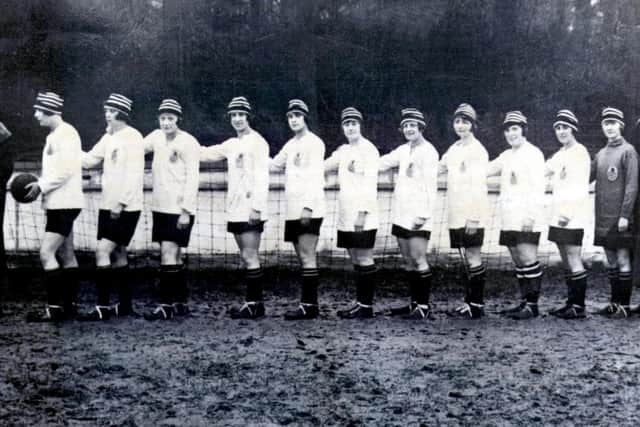

And over their career the Dick, Kerr Ladies FC raised more than £180,000 for charity - in today’s money this would be worth more than £10m.
Recognition for the amazing feats performed by these women have been remembered with a blue plaque at the site of former Dick Kerr factory on Strand Road. And at Deepdale where they managed to play some of their games stands a granite memorial to them, sitting side-by-side with Preston’s other footballing hero, Sir Tom Finney.
They were history-makers of whom we should all be proud.
Advertisement
Hide AdAdvertisement
Hide AdDoes the legend of these remarkable women from Preston shine on in the current crop of players turning out week in week out for their respective local team, as well as the now also infamous England women’s football team?